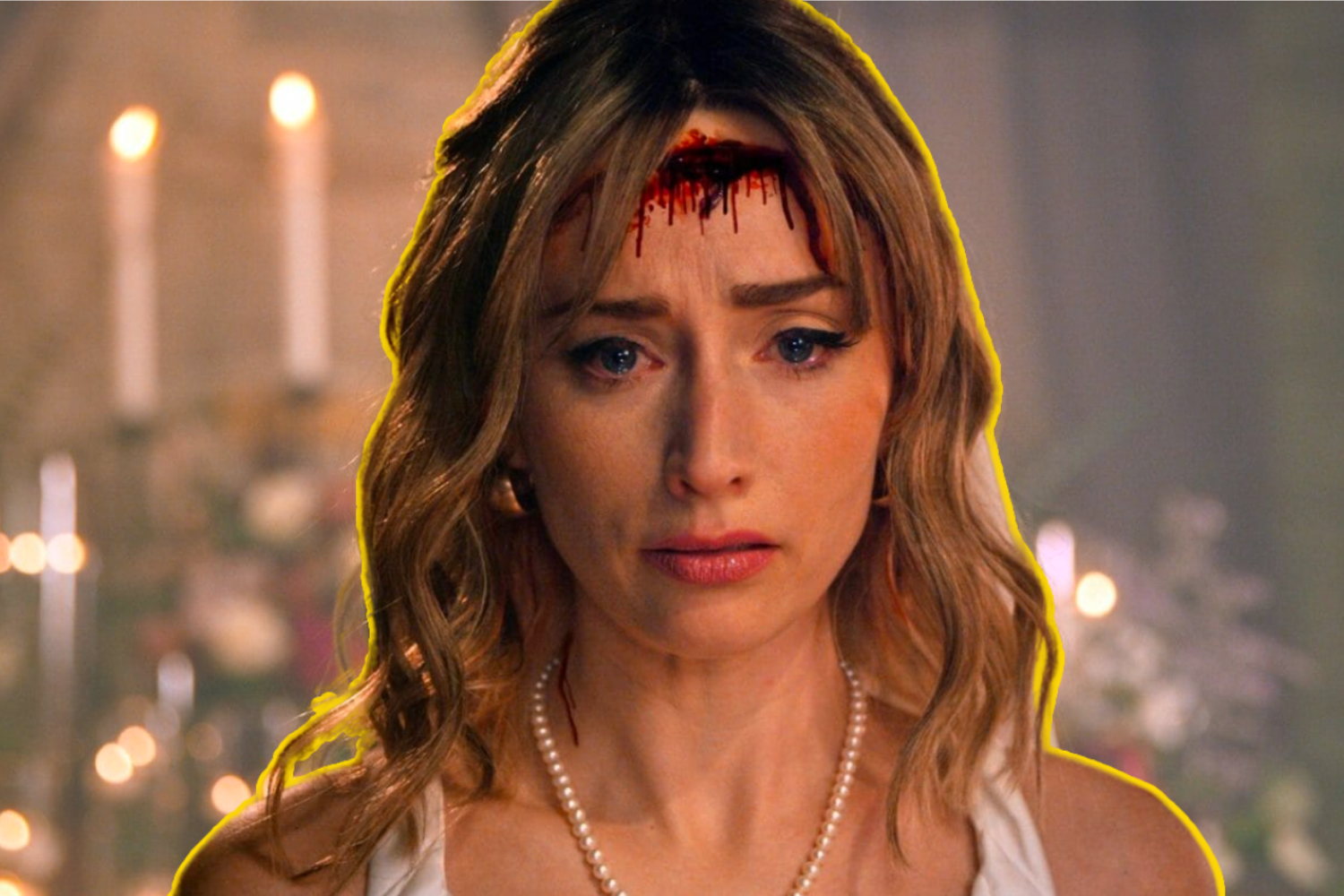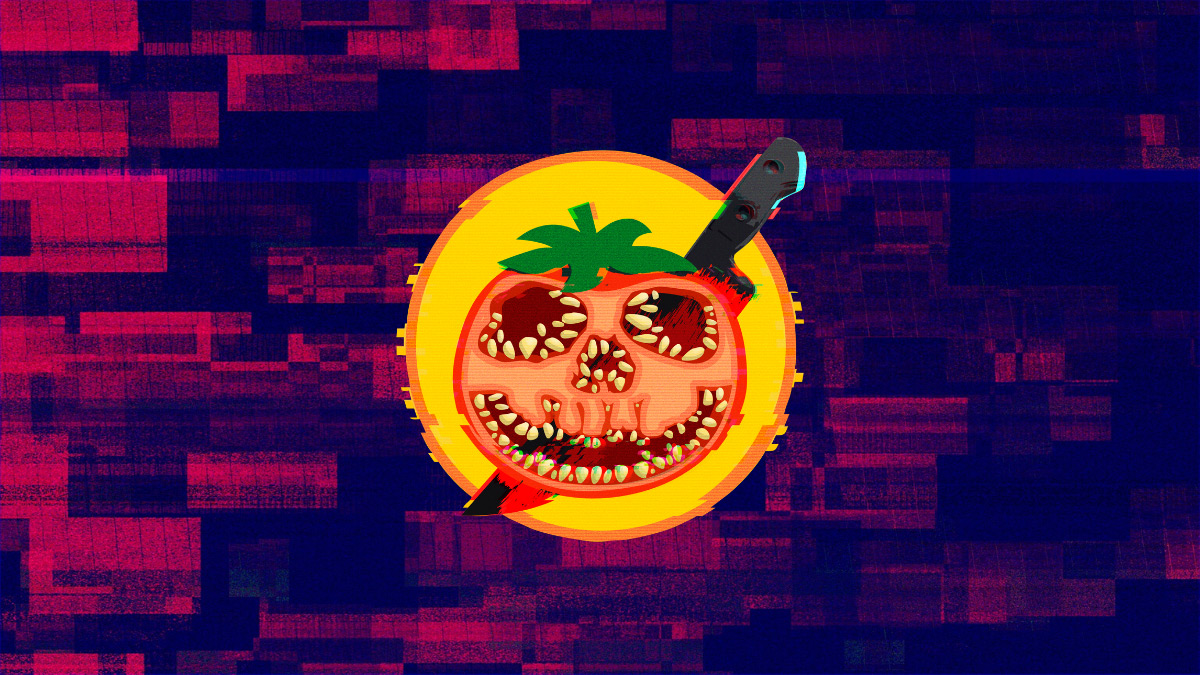Editorials
Intimate Fears of the Service Industry in ‘The Stylist’
November 30th, 2023 | By Devaughn Taylor

In today’s current movie-viewing climate, there sometimes can be an unrealistic expectation that every movie needs to be for everyone. Films that focus on a specific life experience tend to have a harder time with audiences. This is not a result of the film’s quality but instead of the lack of relatability from the critic or audience member. So at first glance, The Stylist is a quiet character study of a hair stylist named Claire who slashes her clients. But if you’re a member of the sacred coven known as “The Service Industry,” you know the fear of this film runs more than just scalp-deep.
Become a Free Member on Patreon to Receive Our Weekly Newsletter
The Stylist is a 2020 film written and directed by Jill Gevargzian – co-written by Eric Havens and Eric Stolze – and based on a short film of the same name. Aside from filmmaking, Gevargzian is a working hairstylist in Kansas City, MO, and knows the world well. Considering the film’s hair-centric scenes were filmed in the salon Jill works at to this day, it would be an understatement to say this film hits close to home for Gevargzian. As a lifelong server and bartender myself, I couldn’t help but empathize with Claire and immediately key into the fears that Gervargzian was exploring. Whether it be barbers, bartenders, or rideshare drivers, there’s an unspoken comradery amongst service givers that only other industry folk can understand.
In other words: if you know, you know.
When industry folk exchange war stories, it’s usually about nightmarish customers or the brunch rush from hell. Given the premise of the film, it’s easy to assume The Stylist is a hairdresser dishing out vigilante justice à la Sweeney Todd. While that may be an accurate comparison in terms of gore, The Stylist has much more in common with films like Maniac or May. It’s a scathingly vulnerable look at a broken person and the horrors of their own minds.
The film is much more interested in the impact one’s profession can have on their own psyche rather than the horrors of their clientele. A unique aspect of working in the service industry is the semi-professional relationships you make with your customers; you form an intimate bond, often learning personal details about them. In some instances, you actually become friends. However, most times, the relationship ends when the appointment does. This can lead you to spiral into dark thoughts. Are we actually friends, or is it just part of the transaction? How much of this is real?
Enter our protagonist Claire, a stylist suffering from extreme loneliness whose only connections are with those in her chair. In her commentary track for the film, Gevargzian notes that “stylists live half their life in a mirror, talking to people through it, constantly looking at their reflections.” This paints such a clear picture of Claire’s headspace and the motives behind her killings. If she cannot connect with people outside the salon, she must extend the experience and put herself in the client’s hair shoes in order to connect with them. Aside from the usual gossip & catch-up, haircuts are an inherently intimate experience. The physical touch between strangers already requires trust, but then there’s the blind faith you have to put in a stranger to not injure your head or mangle the hair that people see every day.
However, the thrill of sensually washing hair and wearing scalps only lasts for so long. As we see Claire approaching a breaking point, she receives a glimmer of hope when her regular Olivia asks Claire to perform wedding hair styling duties. Claire is apprehensive, knowing that this is much more personal than their typical relationship, but she can’t pass up the opportunity to bond with someone at a time when she desperately needs it.
While this initially lifts Claire’s spirit with texting and girls’ nights, the gray area is made murkier as she is still referred to as “the hair stylist” after spending more time with Olivia outside the salon. This comes to a head when Claire is invited out for Olivia’s bachelorette party, where Olivia still can’t firmly claim Claire as a “real friend” amongst her close-knit circle of bridesmaids. The murky nature of this situation is absolutely terrifying for Claire. Despite all the blood and gore in this film, some of the most uncomfortable scenes in the film are the ones highlighting the cringe horror of social situations like picking out wine or trying to flirt with the barista who knows your “usual.”
While I was disturbed by Claire’s killings, I was compelled by her sharing similar fears. One aspect of Claire that is extremely service industry-coded is her ability to “turn it off and on,” common amongst the more introverted industry folk. When she’s styling hair at the salon, she is full of life. Claire has no issue creating conversation, which is the complete opposite when she’s the one being served at the coffee shop. Claire is also very stylish and gorgeous – she is played by Najarra Townsend, who also serves as producer – showing that she’s not an outcast due to physical traits and that her insecurities come from within.
The Stylist really cuts to the core of fears shared by industry workers and their relationships with others: am I actually a cool, interesting person, or am I just really good at my job? Obviously both those statements can be true, but it’s not always an easy thing to convince yourself. The Stylist depicts a fear that no matter how outgoing you can be, it doesn’t mean that it’s easy or that you are immune to loneliness.
Many reviews of The Stylist note an inability to relate to Claire as a central protagonist of a character study. While I may be of the mindset that everyone should work a service industry job at least once for general life skills and work habits, I don’t think you have to be able to relate to every film you watch. The Stylist is a killer example of making a personal film that might not work for everyone but can hit hard for those it does relate to specifically. The Stylist was made for those trying to survive the service industry trenches, and for that, we salute you, Jill Gevargzian.

